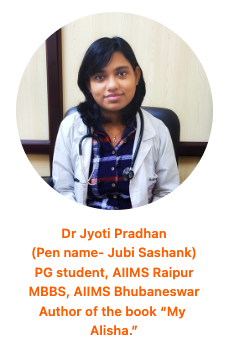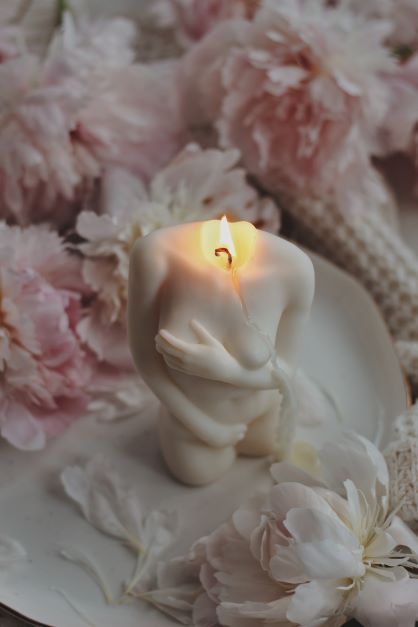Volume 12 Issues 7 July, 2022

There is a saying in our anatomy book “a surgeon is the one who has a lion’s heart, a hawk’s eye and a lady’s hand.” Since age’s healers have been regarded as the epitome of gods on this earth, their toil relieved the sick, the suffering, and the ailed souls. Today doctors have assumed more dynamic roles across the globe. New diseases have appeared repeatedly, and healers have battled over them, discovered new drugs, new antidotes, and new ways to deal with the hydra-head of diseases.
None on earth sees as much misery in a lifetime as a doctor sees in one day. He or she sees people with terminal cancer, young men with amputated limbs, or the sick withering in unbearable pain. He sees more death than most. Society expects a doctor to remain aloof, astute, a solid figure who can bear the brunt of all misery yet remain unaffected by it. Yet how immune is a doctor? How untouched is he?
Recently the newspapers were full of articles about a doctor who broke down compassionately after losing a nineteen-year-old patient. Such an attitude has often been regarded as folly on the doctor’s part. But we must remember that a doctor is a human being too and deserves to be treated.
Medicine takes enormous tolls, not just on the brain and body but also on the psyche. As Erich Segal put it in his famous novel, “The problem with most doctors is that they care too much.” Outwardly a healer might be the most successful and famous of his or her era, but their inner world is as tumultuous and troubled as ever. The burden of high expectations from family, friends, and patients, the iron belief in their in-fatigabilities and omniscience coupled with their realization that their knowledge is so scant even after years of study and hard work that most doctors become wounded in their hearts and souls. No one understands that the Almighty ultimately holds the reins of life, and a doctor has no presidency over it.
Medicos are as much given to alcohol, drug addiction, and smoking as they know more about the disastrous effects of these habits than any other person. There have been instances of psychiatrists themselves turning schizophrenic, best doctors lacking peace of mind and stable home life, coupled with extremely high levels of insomnia, depression, and suicidal tendency than the rest of the general population.
They must confront the relentless truths of life and death, which treat not just a patient’s body but his mind and his relatives who accompany him and pour their vigorous emotions to a doctor expecting him or her to provide a solution for that too. I have witnessed whole cracked-up families wailing in front of a doctor’s cabin or front of operation theatres.
We had seen a doctor smile and take joy in saving someone’s child when his or her child died and was buried the day before. A healer is wounded when he or she, who saves hundreds of lives, cannot save the life of his or her loved ones.
“Who can take away the suffering without entering it?” Henri J. M. Nouwen.
For Carl Jung, “A good half of every treatment that probes at all deeply consists in the doctor’s examining himself . . . it is his hurt that gives a measure of his power to heal.”
The character “House” from the television series of the same name can be considered an example of this archetype in modern pop culture; his physical and emotional scars are both a burden and a driving force in his need to fix the problems of others while destroying himself.
Now, I will narrate an immensely personal experience, which I never had the power to express, yet here I am typing it out! The few days of psychiatry posting during my undergraduate days took their toll on me. Though I showed strength on the outside, smiling and taking a history from all sorts of patients who had messed up lives, only I know that it drove me into a melancholy that lasted at least a week even after the posting ended. Only my mother talked me out of it, reminding me that I have got to learn to stay detached. For example, just because a failed marriage triggered a mental illness in a patient does not mean that I begin to have an aversion towards it or doubt if my marriage or future relationships will ever work out.
“That patient’s life is a singular case that has nothing to do with you,” said my mother. And trust me, I am the first doctor in my family. So, what she said wasn’t out of personal experience but out of her deep understanding of my character.
We are all vulnerable as human beings, and vulnerability is as much for mental pain as it is for physical.
What, then, is the solution? COME OUT AND SPEAK. Talk about it! If you find a friend or colleague in distress, talk to them and just don’t ignore them because “I do not know him or her that well,” or “It’s their problem.” Also, you must speak out about what you are going through. It is nothing to be ashamed of. We are not ROBOTS.
We choose this profession because, in some ways, we LOVE TO HEAL. How can we achieve that if we have wounded ourselves?
Isn’t this the time for us TO HEAL OURSELVES FIRST?



Touching way of asking us to take care of ourselves!